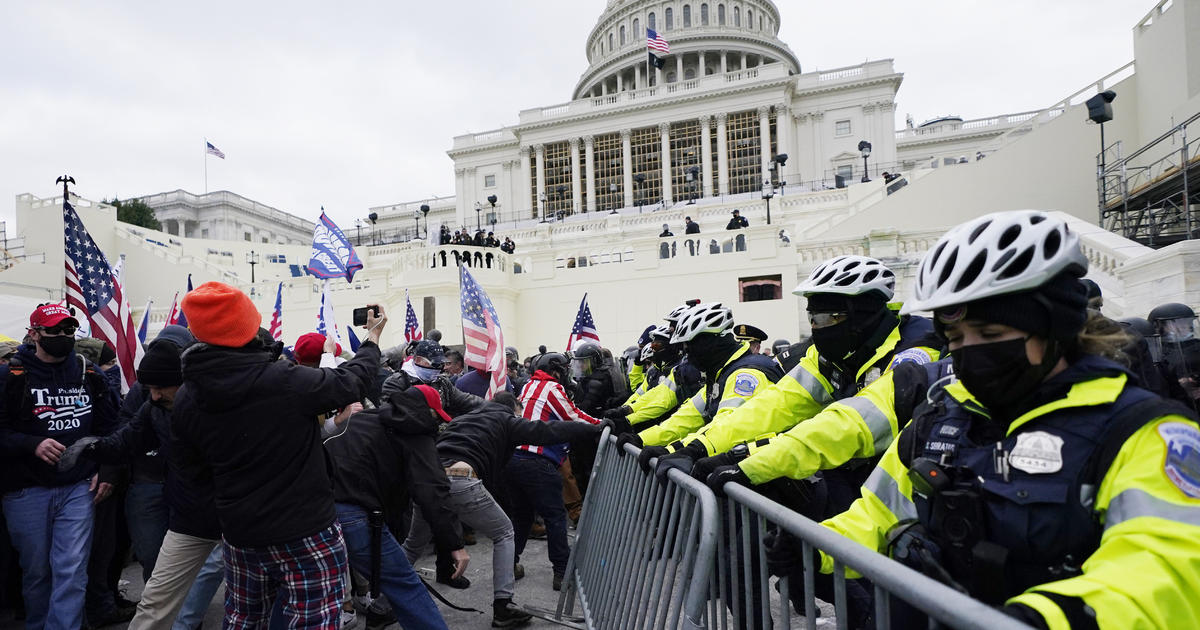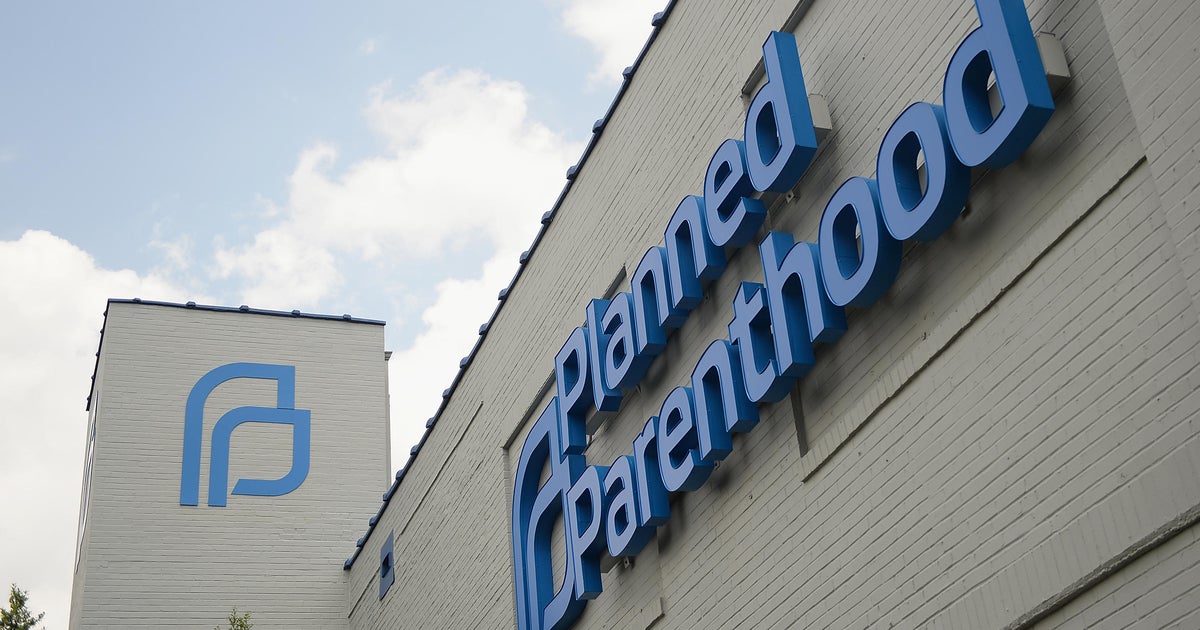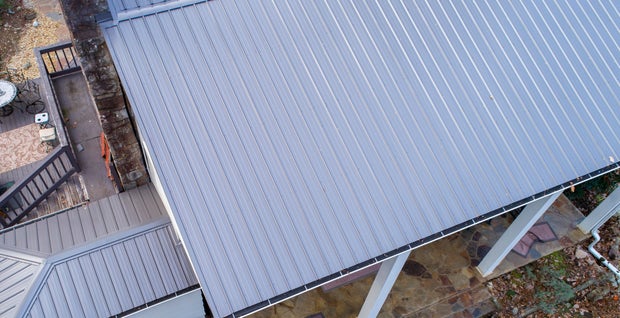CBS News
Supreme Court to examine federal obstruction law used to prosecute Trump and Jan. 6 rioters

Washington — The fallout from the Jan. 6, 2021, attack on the U.S. Capitol will land before the Supreme Court on Tuesday when the justices convene to consider the scope of a federal obstruction statute used to prosecute those who breached the building, as well as former President Donald Trump.
At the crux of the case, known as Fischer v. U.S., is whether federal prosecutors can apply a law passed in the wake of the Enron scandal, which makes it a crime to “corruptly” obstruct or impede an official proceeding, to the Jan. 6 assault.
Before the Jan. 6 attack, prosecutors had never used the law in cases that did not involve evidence tampering, as the first provision of the measure prohibits altering, destroying, mutilating or concealing a document. But since Jan. 6, it has been levied against more than 330 defendants who breached the building where Congress had convened a joint session to tally states’ electoral votes.
It is also being used to prosecute Trump, who pleaded not guilty to one count of obstructing Congress’ counting of Electoral College votes, one count of conspiring to obstruct the proceeding and two others brought against him by special counsel Jack Smith in Washington, D.C., last year.
The outcome of the legal fight is being closely watched because of the possible ramifications for the charges against Trump, which stem from what Smith alleges was a multi-pronged scheme to overturn the outcome of the 2020 presidential election. If the court sides with Fischer, Trump could seek to have the two counts related to obstruction of an official proceeding dismissed.
Trump’s case has been paused for months as he seeks to have the charges dismissed on the grounds he is entitled to presidential immunity. The Supreme Court will consider that issue next week.
Separate from Trump, the obstruction dispute could also have repercussions for scores of Jan. 6 defendants who have already been convicted of the offense or pleaded guilty. A decision finding prosecutors stretched the obstruction law too far could prompt bids for new trials or lighter sentences.
The Jan. 6 case before the Supreme Court
Erin Scott/Bloomberg via Getty Images
One of those defendants, Joseph Fischer, brought the dispute currently before the Supreme Court after he was charged in a seven-count indictment in early 2021. Fischer, then a police officer in Pennsylvania, entered the Capitol around 3:25 p.m. Prosecutors claimed he encouraged rioters to “charge” and ran into a line of officers while yelling an obscenity.
His lawyers, though, said Fischer was pushed by the crowd into a police line. Fischer was in the Capitol for less than four minutes, they told the court.
Among the charges Fischer faced was assaulting a police officer, disorderly conduct and corruptly obstructing, influencing and impeding an official proceeding — Congress’ certification of the Electoral College vote. The charge was enacted as part of the 2002 Sarbanes-Oxley Act, and violators face up to 20 years in prison.
Fischer moved to dismiss the count. U.S. District Judge Carl Nichols granted his request, determining that nothing in the indictment alleged that Fischer “took some action with respect to a document, record, or other object” in order to obstruct the congressional proceedings.
The Justice Department appealed Nichols’ ruling to the U.S. Court of Appeals for the District of Columbia Circuit, which ruled against Fischer in a divided decision last year.
In the lead opinion, Judge Florence Pan acknowledged that outside of the Jan. 6 cases, there was no precedent for using the obstruction statute to prosecute conduct like Fischer’s. Still, she concluded that the district court was wrong to adopt a narrow interpretation of the law that limited its application to obstructive conduct involving a document or record.
Pan noted that 14 of 15 district judges in D.C. adopted a broader reading of the statute and called the near-unanimity “striking.”
Key to the ruling was the interpretation of the word “otherwise,” which Pan wrote meant that the second of the provision’s two sections applies to “all forms of corrupt obstruction of an official proceeding,” outside of what is covered by the first section.
Lawyers for Fischer asked the Supreme Court to review the D.C. Circuit’s decision, and it agreed to do so in December.
In filings with the high court, defense attorneys urged the justices to narrow the scope of the law, arguing it targets “discrete acts intended to affect the availability of evidence” used in an official proceeding.
Congress, they said, intended to protect the integrity of investigations and evidence when lawmakers wrote the measure after the Enron scandal. The company’s outsider auditor, Arthur Andersen, was shown to have destroyed incriminating documents.
Defense attorneys warned that without limiting the reach of the obstruction law, its scope is “breathtaking” and unconstitutional.
“Anything that affects or hinders a proceeding falls within the government’s definition,” they wrote. “But that definition encompasses lobbying, advocacy, and protest, the very mechanisms that citizens employ to influence government.”
Michael Heiskell, president of the National Association of Criminal Defense Lawyers, agreed that prosecutors’ application of the statute is too broad, and warned it can lead to overcriminalization.
“This is one of these examples where you can have an overzealous prosecutor and apply it to certain situations that it shouldn’t be applied to,” he told CBS News.
Heiskell echoed Fischer’s concerns that if the Supreme Court sides with the Justice Department, prosecutors could stretch the statute to cover acts like lobbying.
“It’s so vague and general and subject to different interpretations that we oppose its use in this instance for the Jan. 6 people, especially those who went in, may have broken some laws with trespassing, but then to leapfrog and say these folks try to corruptly influence an official proceeding? That’s just too vague,” he said.
The Justice Department, though, said the text, context and history of the provision shows it broadly bars a person from corruptly engaging in conduct to obstruct court, agency and congressional proceedings.
Accepting Fischer’s argument, wrote Solicitor General Elizabeth Prelogar in a Supreme Court brief, “would undermine Congress’s effort to prohibit unanticipated methods of corruptly obstructing an official proceeding — such as petitioner’s alleged conduct in joining a violent riot to disrupt the joint session of Congress certifying the presidential election results.”
Prelogar refuted warnings from Fischer’s attorneys that if interpreted broadly, the law would be used to prosecute constitutionally protected conduct like lobbying or peaceful protests. Instead, she said the statute is limited to acts that hinder a proceeding, and advocacy like lobbying or presenting oral argument before a court don’t qualify.
“The text of the provision resolves this case, and there is no basis to insert language into the statute that Congress did not write,” she argued, noting that it functions as a “catchall offense” designed to cover all forms of corrupt obstruction of an official proceeding.
Randall Eliason, a former federal prosecutor in Washington, D.C., called fears about how the obstruction statute may be used in the future “baseless,” since prosecutors apply it only in cases where they can show corrupt intent.
“We haven’t seen prosecutions of innocent lobbyists, so why would that change in the future just because we applied this statute to an unprecedented event?” he asked, noting that the offense has been on the books for 20 years. “Unprecedented crimes lead to unprecedented prosecutions.”
He questioned how the law could be read ambiguously.
“Someone who participates in a riot, shuts down a proceeding, forces members to flee, is obstructing that proceeding,” Eliason said. “The statute applies. Period.”
Ramifications of a decision
Mostafa Bassim/Anadolu via Getty Images
The Supreme Court said in December it would take up the case, and its decision to do so reverberated swiftly. Some defendants who were convicted of violating the obstruction statute but not yet sentenced sought to pause their proceedings until the justices rule, likely by the end of June.
If the court sides with Fischer and finds the law narrowly covers corrupt evidence-related conduct, there could be dozens of defendants who have been convicted and seek resentencing, withdraw guilty pleas or ask for a new trial, said Eliason, who now teaches criminal law at George Washington University.
“It may not result in a lot of people being released from prison, but it will result in a lot of court proceedings where judges have to deal with it,” he said.
One of those defendants is Donovan Crowl, a member of the Oath Keepers who was convicted last year of conspiracy to obstruct Congress’ counting of electoral votes and set to be sentenced in January. But Crowl’s lawyer, Carmen Hernandez, recently renewed a request to halt his sentencing pending the Supreme Court’s resolution of the Fischer case.
Federal prosecutors opposed an earlier bid by Hernandez to delay the sentencing but changed their position in response to her request last month.
“I do believe the statute was never intended to reach this conduct. It was a statute enacted to reach corporate fraud,” Hernandez told CBS News, adding that “in 20 years on the books, it has never been used against any demonstrators.”
Hernandez said she is hopeful the Supreme Court will side with Fischer and the decision will favorably impact her client.
As for the impact on Trump’s case, Eliason said he believes the obstruction-related counts against Trump will withstand any Supreme Court decision, in part because his alleged conduct may constitute evidence-based obstruction.
The special counsel has accused Trump of deceitfully organizing fake slates of electors in seven battleground states and urging state officials to send the false certificates to Congress.
“You can frame that as tampering with physical evidence in the proceeding, submitting false evidence,” Eliason said. “Even if the court agrees with Fischer, the Trump charges can survive. But it’ll cause a real mess for the other Jan. 6 defendants.”
Smith told the Supreme Court in a filing in the immunity case last week that regardless of which side prevails, the charges against Trump are still valid.
Pointing to Trump’s alleged efforts to use fake slates of electors during the joint session of Congress held on Jan. 6, the special counsel wrote the creation of the phony documents “satisfies an evidence-impairment interpretation.”
CBS News
How to protect your home from a hurricane

The carnage left by Hurricane Beryl in the Caribbean this week is a stark reminder of the destruction such storms can wreak on entire communities. And with meteorologists expecting an above normal Atlantic hurricane season this year, nearly 33 million homes from Texas to Maine could face danger from the savage winds, storm surges and heavy rainfall such tempests can produce, real estate data provider CoreLogic estimates.
Read on to learn what experts say homeowners can do to harden their properties against hurricanes.
Lucanus Ollivierre / AP
Cover the windows
When time is of the essence, the quickest and cheapest way to protect your home from a hurricane is nailing plywood across all the windows. Owners who have more time to prepare can protect windows by installing so-called roll shutters, which a little like a garage door and which run between $300 and $400.
“That’s going to protect you from the debris flying into your window,” said Michael Gridley, a residential construction professor at SUNY Morrisville in upstate New York, noting that many homeowners can mount plywood or install roll shutters themselves.
But such fixes are temporary and likely won’t keep glass from shattering and falling into your home, Joshua Parrish, a general contractor in Georgia, told CBS MoneyWatch.
Getty Images/KangeStudio
For stronger, long-term protection, a professional can install hurricane windows, which typically have a steel or aluminum frame and reinforced glass.
“The glass actually has two layers of heat-treated glass, and there’s plastic in between them. It will actually protect you,” Gridley said.
Not surprisingly, hurricane windows are costly. At $125 to $150 per square feet, installing them could easily cost a homeowner between $10,000 and $30,000, he noted.
Barricade your doors
As with the measures for safeguarding windows, homeowners have three basic options: putting up plywood, adding a larger roll shutter or having a hurricane door installed.
Parrish said mounting plywood on sliding glass or patio doors should provide sufficient protection from Category 2 (wind speeds of 96–110 mph) or Category 3 (wind speeds 111-129 mph) hurricanes. For more powerful storms, he recommends a hurricane door. That starts with deciding whether to get a steel, aluminum or fiberglass door.
“I would lean toward getting something like fiberglass just because, in case of a dent, something in that family of metal would be more difficult to fix and you’d have to end up replacing it,” Parrish said.
Hurricane doors typically cost between $2,400 and $4,000 depending on the structure and size, Gridley said.
Reinforce your roof
Before making any changes to your roof, it’s important to first check for soft spots in your roof deck, nail down any loose shingles and clear the gutters so water flows quickly away from your home, experts said.
After the roof checkup is done, homeowners can generally go one of two routes. For those who don’t have the time or money to replace the roof, Gridley said they should consider cementing the existing shingles together. Shingles are already nailed down and stuck together with asphalt, but over time the asphalt cracks and fades — adding cement reinforces them.
Another, pricier option — but one that offers better protection, including from an insurance perspective — is to install a metal roof.
“It fastens down, it has less room for [wind] pickup — it’s going to be the best option,” Gridley said.
Dan Reynolds Photography/Getty Images
Metal roofs are installed so there are no “seams where wind can get underneath and start lifting that off the building,” Parrish said, adding, “It’s probably going to be double the cost of a typical shingle roof. But it’s going to last you almost forever — 40, 50, 60 years.”
A 2,000 square-foot metal roof costs an average of roughly $27,000, according to Architectural Digest.
Seal the foundation
Examine the foundation of your home and the walls of your basement or crawl space for cracks, the experts said. If you notice deep, long cracks, consider hiring a waterproofing company to seal them.
It’s vital to get cracks fixed because there could be water pressing against a foundation wall — structural risk that could lead to flooding during a hurricane, Parrish said.
“That’s additional water pressure beating against your home and, if it’s severe enough, it could cause other issues, and now you have a bigger problem on your hands,” Parrish said.
CBS News
Planned Parenthood to blitz GOP seats, but will abortion sway California’s conservative voters?

Planned Parenthood is preparing a seven-figure campaign blitz to oust GOP incumbents from California congressional seats, part of a larger national effort by the reproductive rights group to prevent a Republican majority from passing abortion restrictions, including a national ban.
Planned Parenthood Affiliates of California is targeting eight districts where voters largely backed Republicans in 2022 even as they endorsed a constitutional amendment enshrining access to abortion and contraceptives. The advertising plan goes negative by focusing on each incumbent’s record of voting against access to abortion and contraceptives. In the past, the group riffed on the “Burn Book” from the 2004 comedy “Mean Girls.”
GOP party officials said they were confident voters in those districts would look at the bigger picture and return Republicans to office. And one incumbent dismissed the notion that there’s a threat to reproductive care in the Golden State.
“Access to abortion and other reproductive care aren’t going anywhere in California,” said Calvin Moore, a spokesperson for Rep. Ken Calvert of Riverside County. “Congressman Calvert believes this is a deeply personal issue that should be left up to the states and opposes a national abortion ban.”
With 52 seats, liberal California could tip the scales for control of the U.S. House this fall. But Planned Parenthood has its work cut out for it since seven of the seats it is targeting are currently held by Republicans and only one — to be vacated by Democrat Katie Porter after an unsuccessful bid for U.S. Senate — is open.
According to The Cook Political Report, four are toss-up races; Rep. Michelle Steel’s district, mostly in Orange County, leans Republican; and Reps. Kevin Kiley, who represents a district along California’s eastern border, and Young Kim, who represents a district east of Anaheim, are likely to win.
Abortion has proved to be a bigger issue for many voters than political analysts may have anticipated. “In many of these seats, I think voters care about their reproductive freedoms and they resonate with our message, so we think we’re going to win,” said Jodi Hicks, CEO and president of Planned Parenthood Affiliates of California.
While Planned Parenthood is focused on House races, Hicks said it is also monitoring neighboring states. One California branch, Planned Parenthood Mar Monte, stretches into Reno, Nevada, and its advocacy arm has been supporting a Nevada ballot initiative that would constitutionally protect Nevadans’ right to abortion.
Nationally, the group plans to spend $40 million in at least eight states: Arizona, Georgia, Montana, New Hampshire, New York, North Carolina, Pennsylvania and Wisconsin.
In California, Planned Parenthood aims to highlight the record of members of Congress like Kiley, who voted to potentially impose prison sentences on doctors who provide abortions. Calvert, Kim, Steel and Reps. Mike Garcia, of northern Los Angeles County, and David Valadao, of the Central Valley, voted against access to birth control. And Garcia, Valadao and Steel co-sponsored a bill to effectively ban abortions nationwide.
Assembly Republican leader James Gallagher, who is on the California Republican Party board, said many Californians don’t trust Democrats to protect their health care rights even if political leaders support abortion being legal, pointing out that under Democrats maternity wards have closed and hospitals have filed for bankruptcy.
“Democrats don’t really have a great record in California right now on women’s health care issues,” Gallagher said. “So I think it just rings a little bit hollow.”
According to a February KFF poll on abortion as a 2024 election issue, about half of Republican voters who support it being legal trust their own party more on the issue, while 8% trust the Democratic Party more. One in three said they don’t trust either political party on the issue.
Ivy Cargile, an associate professor of political science at California State University, Bakersfield, said it may be tricky to galvanize voters on the issue since many Californians are confident their reproductive rights are protected in the deep-blue state. “Voters might be thinking that California is so progressive, so reproductive rights are safe,” Cargile said. “But federal law does trump state law.”
Planned Parenthood will impress upon Central Valley and Southern California voters that remaining loyal to Republicans risks a national abortion ban. A large part of its advertising campaign will focus on connecting the dots for voters, arguing support for reproductive rights requires voting for Democratic candidates.
“California is so pivotal to ensure that we’re winning at the national level,” Hicks said.
Gallagher said the GOP’s focus on inflation and public safety will resonate with voters in California’s more conservative districts. He and Calvert predict the races will mirror what happened in 2022: Though voters backed the constitutional amendment for reproductive rights, they supported incumbent Republicans, even those who were anti-abortion.
KFF Health News spoke to six voters in Garcia’s district who say they support access to abortion but typically vote for Republican candidates. All six planned to vote for Garcia’s reelection.
Rose Large of Santa Clarita said that while she supports abortion rights, she has deeper concerns with Democratic Party leadership on issues such as the economy and border control. Others mentioned fears of rising crime and wanting to protect Second Amendment rights.
Asked if she believed Planned Parenthood’s campaign would sway her or voters in her neighborhood, Large replied, “Personally, I don’t. No.”
This article was produced by KFF Health News, a national newsroom that produces in-depth journalism about health issues and is one of the core operating programs at KFF — the independent source for health policy research, polling, and journalism. KFF Health News is the publisher of California Healthline, an editorially independent service of the California Health Care Foundation.
CBS News
7/2: CBS Evening News – CBS News

Watch CBS News
Be the first to know
Get browser notifications for breaking news, live events, and exclusive reporting.






